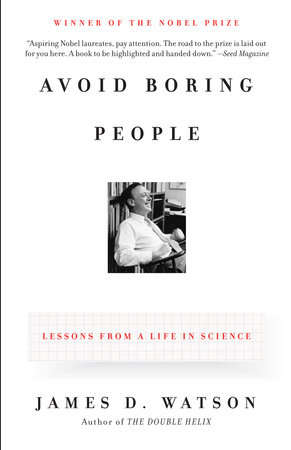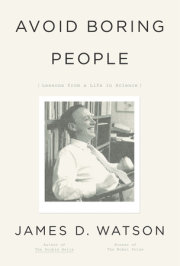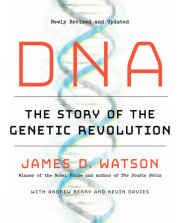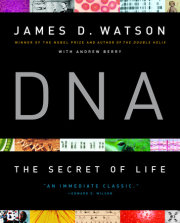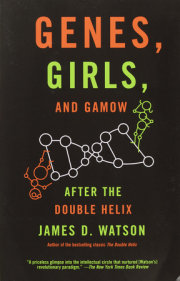Remembered Lessons from Childhood on Chicago's South Side1. Avoid fighting bigger boys or dogsAs a child I lived with being punier than other boys in class. The only consolation was my parents' empathy—they encouraged constant trips to the local drugstore for chocolate milk shakes to fatten me up. The shakes made me happy, but still all through grammar school other kids shoved me around. At first I responded with my fists, but soon I realized that being called a sissy was a better fate than being beaten up. It was easier to cross to the other side of the street than come face-to-face with loitering menaces with a nose for my fear. Likewise, I was no match for barking dogs, particularly ones I had provoked by climbing over fences into their domains. Spotting a rare bird is never worth the bite of a cur. Once bitten by a German shepherd, I knew that I preferred cats, even if they are bird-killers. Life is long enough for more than one chance at a rare bird.
2. Put lots of spin on ballsI long wanted to be part of the softball games played on the big vacant lot across Seventy-ninth Street. At first my only way to join in was to field foul balls. Then I learned how to put spin on underhanded pitches that kept even the better batters from routinely smacking line drives through holes in the outfield. From then on I felt much less an outsider on Saturday mornings. The spins that came from similarly slicing ping-pong serves helped make me a good player well before my arms got long enough to reach near the net of our family’s basement table.
3. Never accept dares that put your life at riskSeeing classmates dash across a street to beat a coming car filled me with more horror than envy of their bravado. When I rode my bike three miles to the Museum of Science and Industry, I knew my constantly worrying mother would have preferred my taking the streetcar. But by being cautious—going down as many alleys as possible and never taking my hands off the handlebars when a car was passing—I was never really putting my life at significant risk. Likewise, in climbing up and over the branches of neighborhood trees or hoisting myself up along gutters to the roofs of one-story garages, I may have been risking a broken leg but not a fatal fall. The possibility of plunging more than ten feet never seemed worth the thrill of being high up.
4. Accept only advice that comes from experience as opposed to revelationListening to my elders just because they were older was not the way I grew up. Preadolescent exposure to my relatives’ views that the New Deal would bankrupt the United States and that Hitler would cease being an aggressor after conquering England left me with no illusions that adults are less likely than children to utter nonsense. For the most part, my parents tried to provide rational explanations for why I should think a certain way or do a certain thing. So I was convinced by my mother’s advice that I wear rubbers on rainy days so as not to ruin my leather soles. At the same time, I rejected her no less often heard argument that sodden feet led to colds.
By then I was conditioned to accept my father’s disdain for any explanations that went beyond the laws of reason and science. Astrology had to be bunk until someone could demonstrate in a verifiable way that the arrangement of the stars and planets affected the course of individual lives. Equally improbable to Dad was the idea of a supreme being, the widespread belief in whose existence was in no way subject to observation or experimentation. It is no coincidence that so many religious beliefs date back to times when no science could possibly have accounted satisfactorily for many of the natural phenomena inspiring scripture and myths.
5. Hypocrisy in search of social acceptance erodes your self-respectMy parents and most of their neighbors had nothing bonding them together but Horace Mann Grammar School. Mother, with an outgoing and generous personality, naturally rose to be president of the PTA. But except for a keen interest in baseball, Dad had nothing in common with his fellow fathers. That love, however, seldom drew him into the backyards of neighbors, where frequent blasts at the New Deal and occasional anti-Semitic jokes were insufferable for Dad, whose favorite radio personality besides Franklin Roosevelt was the Jewish intellectual Clifton Fadiman. He knew enough to avoid occasions where polite silence in response to repulsive remarks could be construed as acquiescence in their awfulness.
6. Never be flippant with teachersMy parents made it clear that I should never display even the slightest disrespect to individuals who had the power to let me skip a half grade or move into more challenging classes. While it was all right for me to know more about a topic than my sixth-grade teacher had ever learned, questioning her facts could only lead to trouble.Until one has cleared high school there is little to be gained by questioning what your teacher wants you to learn. Better to memorize obligingly their pet facts and get perfect grades. Save flights of rebellion for when authority does not have you by the throat.
7. When intellectually panicking, get help quicklyOccasionally I found myself nervously distraught, unable to repeat an algebraic trick I had learned the previous day. I never hesitated in such circumstances to turn to a classmate for help. Better for one of them to know my inadequacies than not to be able to go on to the next problem. “Do it yourself or you’ll never learn” may have some validity, but fail to get it done and you’ll go nowhere. Even more frequently I was unable to express myself in words and habitually procrastinated with writing assignments. It was only with my mother’s last-minute help that I punctually submitted a well-written eighth-grade paper on the history of Chicago. Of much greater importance was Mother’s later insistence that she edit every word of my scholarship essay to the University of Chicago. I accepted her extensive editing with little guilt, then or since.
8. Find a young hero to emulateOn one of our regular Friday night visits to the Seventy-third Street public library, my father encouraged me to borrow Paul de Kruif’s celebrated 1926 book,
Microbe Hunters. In it were fascinating stories of how infectious diseases were being conquered by scientists who went after bad germs with the same tenacity as Sherlock Holmes pursuing the evil Dr. Moriarty. Some months later I brought home
Arrowsmith, in which Sinclair Lewis, helped by Paul de Kruif as expert consultant, relates the never-realized hope of his hero to save victims from cholera by treating them with bacteria-killing viruses. The protagonist’s youth gripped me and made me realize that science could be like baseball: a young man’s game whose stars made their mark in their early twenties.
Also encouraging me to aim high was my not-too-distant cousin Orson Welles, whose grandmother was a Watson. Though we never met, he also had an Illinois background and after being effectively orphaned was partly raised by my father’s uncle, the celebrated Chicago artist Dudley Crafts Watson. Always turned out with much panache, including a pince-nez, Dudley relished telling his nephew’s family of Orson’s triumphs, which began when he was a child actor in the Todd School. Orson’s daring was what appealed to me most, from his famous
War of the Worlds radio hoax to his groundbreaking feature
Citizen Kane. A scientist’s hero need not be a microbiologist, let alone a baseball player.
Copyright © 2007 by James D. Watson. All rights reserved. No part of this excerpt may be reproduced or reprinted without permission in writing from the publisher.

